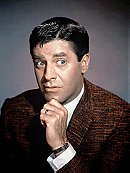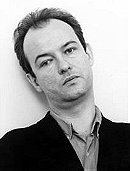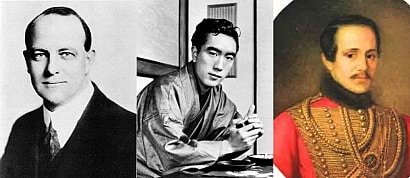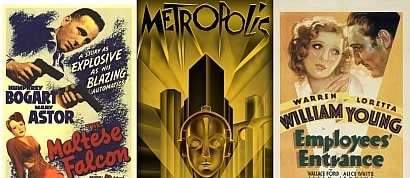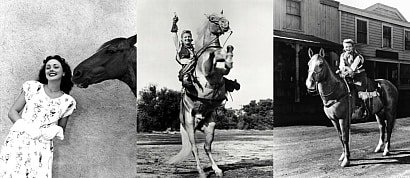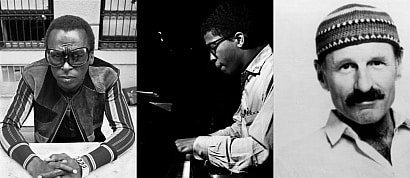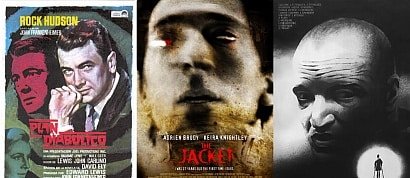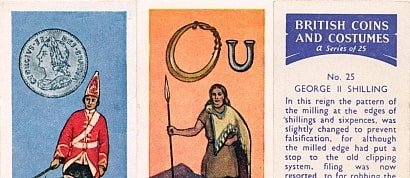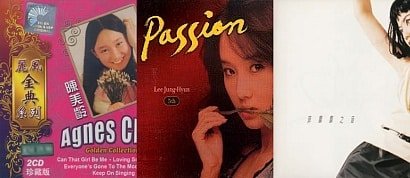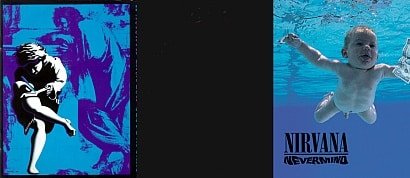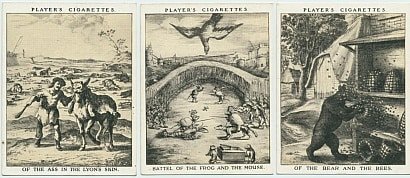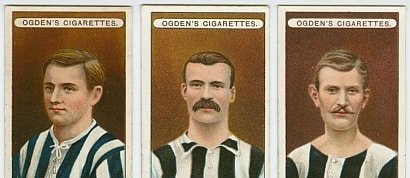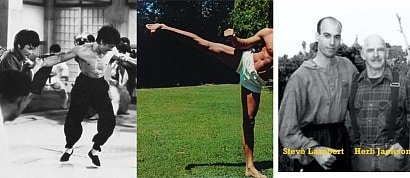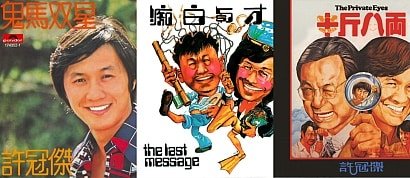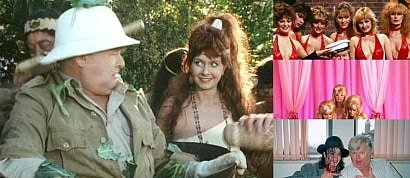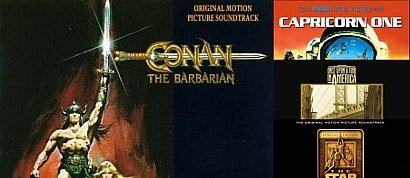In Praise of Pauline Kael
Sort by:
Showing 15 items
Rating:
List Type:

“Kael had a more positive influence on the climate for film in America than any other single person over the last three decades. She had no theory, no rules, no guidelines, no objective standards. You couldn’t apply her ‘approach’ to a film. With her it was all personal.”
“The most powerful, loved, and hated film critic of her time.”

"(She) was more than a great critic. She reinvented the form, and pioneered an entire aesthetic of writing."

Comments on The Dick Cavett Show (1973):
"She's never said a good thing about me yet. That dirty old broad. But she's probably the most qualified critic in the world. Cause she cares about film and those who are involved in it. I wish I could really rap her. But I can't. Cause she's very, very competent. She knows what she's talking about."

"As influential as any director was in helping me develop my aesthetic."
"One review Pauline Kael wrote that ended up meaning something to me in a big way, was for "Band of Outsiders." She said it was as if a bunch of movie-mad young French boys had taken a banal American crime novel and translated the poetry that they had read between the line. It was like - that is my aesthetic. Right there. That is - that's what I hope I can do."

"[Y]our thoughts and writing about the movies [have] been a very important source of inspiration for me and my movies, and I hope you don't regret that".

Camille Paglia described Kael as her second favorite critic (behind Parker Tyler), criticizing Kael's commentary on such films as La Dolce Vita and Last Year at Marienbad but also describing Kael as "unfailingly perceptive [...] [her] tart, lively, colloquial style I thought exactly right for a mass form like the movies."
"Just a masterpiece of satire is "The Come-Dressed-As-the-Sick-Soul-of-Europe Parties." This, what Kael was attacking, were the films I adored. Oh, these foreign films where the people migrated from one bad party to another. Pauline Kael, in her attack on those films, captures exactly what it was I loved about the films."

"The shrewdest thing to say about Pauline Kael – beyond recognising that she was essential – is that she was kind of crazy. Yet determined to seem rational or in control."
"In her best writing there was a marriage – no, an affair – between ecstasy and disgust."
"Her agitated voice and spurting rhythms were infectious. She was better than some of the film-makers she espoused – smarter, more giddily romantic and more insistent that they do good work. She ushered in an age of film controversy at dinner parties. She was as competitive as an old lefty, reckless in taking on disciples – and then telling them what to think. But she wrote like a fallen angel, a slangy, cocksure Satan who guessed God was asleep. She said she saw the movies only once and sometimes she wrote as she watched."
"Film critics today labour in a gloom and irrelevance Kael could not tolerate."

"Kael’s legendary essay-review about Bonnie and Clyde was published in 1967 in the New Yorker. For a movie critic to read it now is to experience a mix of emotions: glee, euphoria, fascination, exhilaration and shame that you are not doing anything as passionate and glorious in your own work.
It is one of the greatest pieces of journalism or criticism; perhaps the greatest I have ever read. This is heroic criticism, warrior criticism, live-ammo criticism that boldly intervenes in culture and unapologetically takes on everything: the movie, the movies, the audience, the other critics, history, society, politics, love and death. This isn’t simply a demonstration of reviewing in all its habitual simpering passivity – that type of criticism which is, paradoxically, entirely uncritical, because it eats up whatever film is put on its plate every week and then obediently raises a thumb up or down or at some angle.
This is criticism that doesn’t wait to be asked, Kael’s criticism isn’t happy with the demurely submissive “handmaiden to the arts” tag; she is more like Joan of Arc at the Battle of Orléans.
Perhaps the most brilliant thing in the review is Kael’s fault-finding in the film itself, her fierce engagement with its flaws – which I think is how she managed to get under the skin of Beatty, who perhaps resented his debt to her and resented her lèse-majesté in refusing to bow the knee to his superior status as a creative artist and movie star. She criticises his acting at various stages, although impudently comments that producing the film may have concentrated his mind on its scene-by-scene structure and his place in it.
Elsewhere in the piece, she has a shrewd and valuable comment on what is right and wrong with the movie’s editing – something modern criticism too often passes over in silence – and she returns to what became a keynote of her critical career: the importance of writers and the importance of understanding cinema as a collaborative art, and she politely but firmly rejects the auteurist and very male critical cult of the director. She was probably annoyed by the machismo in all that, but isn’t afraid of a bit of machismo of her own, a kind of muscle-flexing and provocation and grandstanding: the essential showbusiness of journalism. She strides up on the stage and takes her place alongside Penn and Beatty. How insipid most criticism looks compared with this."

"With her reviews of films like Bonnie and Clyde and Last Tango in Paris, she shared her delight in both the sublime and the profane."
"She shaped American film criticism for generations to come and, more important, the national understanding of the movies."

"She turned a movie review, which is this kind of flimsy vehicle, its a thumbs up or thumbs down endeavor, into this expressive art form."

"It would be hard to be as engaged with the world as Pauline was, in terms of her energy, in terms of her intellectual curiosity, in terms of her capacity for outrage and love."
[on Kael's review of "Bonnie and Clyde"] This is in the middle of the Vietnam War where people are becoming inured to death, to carnage, to blood... I will never forget the last line of that piece, "By making us care about these outlaw lovers, this movie has put the sting back into death." Wham. The movie ends in complete silence and the theater is left in complete silence. Everything you've been watching on the news every night from Vietnam has suddenly been made *unreal* by this movie. That's the great inversion that happens in art. That happens and the criticism can help make happen."
"Even if you've seen the movie you haven't seen the movie. You're seeing it for the first time as you're reading the review."
"She wrote as someone who, in order to see a movie, had to go to a movie theater and pay to buy a ticket and go in and find a seat and sit down. When she writes about a movie, she also writes about the audience around her. She writes as part of an audience and she's listening to the catcalls and the wisecracks, the sound of boredom, or the sound of excitement, engagement. And all that goes into her writing."

"She created a tremendous amount of attention both to herself and to "Bonnie and Clyde" with her review - which changed the face of reviewing. The first reviews of the movie were so bad, everywhere, that you just thought, 'Well, that's it for this movie'... And then Pauline reviewed it in such a spectacular way that it caused a counter reaction."

"'Trash, Art, and the Movies' was highly influential to me. I knew the difference between what was art and what was trash. *But*, her distinction between what is good trash and bad trash, populace movies that are done really well, but do not aspire necessarily to be art, are still to be cherished and tried for. Its what the business of the studio is. And you don't have to do it by pandering to the lowest common denominator. You can do it well, without necessarily making art."

“Perhaps more deeply than any other writer, Kael gave shape to the idea of an ‘age of movies.’”
“Her overall thinking, which was that of a liberal writer admonishing what she saw as the myopia of her fellow liberals, had much the same drive [as] Jane Jacobs in her 1961 classic The Death and Life of Great American Cities.”
“As concerned with audience reactions as with her own, she could be caught up in how movies stoked our fantasies regardless of their quality as movies.”

How one of her reviews added more to the lifespan of a movie:
"Pauline was then writing for the New Republic. She had recently reviewed Masculin-Féminin after it had lasted but a week at the New Yorker cinema. Her review, blown up and mounted outside the movie house, brought Godard’s film back for a successful run. Her bully pulpit techniques, the ones she had honed at the Berkeley Cinema Guild, now worked in New York. She was on the cusp of exercising her clout. That headiness, that evangelical purpose, permeated the room."
How Kael got him into UCLA:
"I saw her again that summer and corresponded after returning to Calvin College, sending her articles I’d written for the school paper. She offered to help me get accepted at UCLA film school. UCLA was then, as now, the acme of film schools, very difficult to get into, but she was friends with its head, Colin Young. She assured me that her word would have weight.
Those were the days when I would go to bed at night and pray to God to keep Pauline Kael alive. I dreaded picking up the paper and reading that she died. She was my only way out of Calvin, the Christian Reformed Church and Grand Rapids, Michigan. If she dies, I’ll be trapped there forever! Please God, just let her live another year. I won’t ask anything else.
Well, she lived, I was accepted at UCLA and my life changed. She helped me get a weekly reviewing gig at the Los Angeles Free Press. Like her other acolytes, I read her religiously, sent her everything I wrote and waited for her call. The phone would ring. Pauline, in that passionate, bullying voice, would explain that such-and-such a film (La Chinoise, for example) needed our support, and to the barricades we’d run."
On her mentoring approach:
"Pauline was a complex mentor. On one hand, she infused your life like a whirlwind, dominating your thinking, affecting your personal relationships, demanding fealty; on the other, she could not respect anyone who would not stand up to her. Love her too little and she attacked you; love her too much and she disregarded you. It was a formula for heartbreak – a heartbreak I think the acolytes felt more deeply than their mentor. Mine came in two stages."
On Kael as a mother figure:
"I began to fear her death anew. My mother had died in 1978, and I blamed myself for not expressing my love for her until it was too late. What if this ultimate family drama were to be reenacted? What if Pauline, my second mother, the enabler of my creative life, were to die before I had a chance to express my gratitude?
Over the last decade, I visited Pauline most summers. One occasion stands out. I was returning from Canyon Ranch in the Berkshires. I called and said I’d like to stop by. I knew she had just returned to Great Barrington after two operations in Boston. She said she wasn’t fit for company. I told her I would stop by nonetheless. Her daughter, Gina, ushered me up to Pauline’s bedroom, and I was taken aback by her appearance. Always small, she now seemed skin and bones. I could encompass her wrist between my thumb and forefinger. I pulled up a chair and began time-honoured bedside chatter: how are things, fall is early, blah, blah, blah. But she would have none of it. She wanted my opinions on movies. I spoke in gentle tones, clearly a mistake. Retorts shot from her mouth like spinning razor blades, adjectives zipping passed my head, adverbs cutting my bare arms, clauses battering my torso. I told her the thing I had never told my own mother on her deathbed. I told her that I loved her."
Pauline Kael (/keɪl/; June 19, 1919 – September 3, 2001) was an American film critic who wrote for The New Yorker magazine from 1968 to 1991. Known for her "witty, biting, highly opinionated and sharply focused" reviews.
Kael's opinions often ran contrary to the consensus of her fellow critics. Occasionally, she championed films that were considered critical failures, such as The Warriors and Last Tango in Paris. She was not especially cruel to some films that had been deplored by many critics—such as the 1972 Man of La Mancha, in which she praised Sophia Loren's performance. She also panned films that had elsewhere attracted critical admiration, such as A Woman Under the Influence ("murky, ragmop movie"), The Loneliness of the Long Distance Runner, It's a Wonderful Life, Shoah ("logy and exhausting"), Dances with Wolves ("a nature boy movie") and 2001: A Space Odyssey, the last of which Kael dubbed a "monumentally unimaginative movie."
Kael's witty, often slangy, language immediately struck a chord among readers and was considered by many as a breath of fresh air. The originality of her opinions, as well as the forceful way in which she expressed them, won her ardent supporters as well as angry critics and fans. Her reviews were also founded on acute social, commercial and artistic insight.
She is considered by many to be the greatest and most influential film critic of the late twentieth century, who has left a lasting impression on the artform.
Her favourite films included Bonnie and Clyde, The Godfather and Last Tango in Paris and Marlon Brando, James Mason, Barbra Streisand and Jane Fonda were among her favourite actors.
Added to
People who voted for this also voted for
Film Diary of 2023
The Best In Literature For Me.
Movies Watched (2022)
70's exported music from Albion Island
Actresses ~ Horses, Mules, Donkeys
Miles Musicians
Disturbing covers of movies that are not terror
Book Diary 2022
Cigarette Cards: British Coins and Costumes
Favorite Asian Pop CD
1991 : My Top 10 Favorite Songs
Cigarette Cards: Fables of Aesop (1927)
Impressive Playing Forms
Cigarette Cards: Famous Railway Trains (1928)
Cigarette Cards: Football Club Colours (1906)
More lists from shotswerefired
Rewatched (2023)
Best Film Studio Logo Intros
In Praise of...
CNN's 19 Most Beautiful Men from Hong Kong Cinema
Samuel Hui's Greatest Hits
In Praise of Benny Hill
Memorable Film Scores
 Login
Login
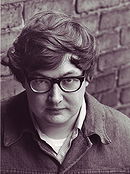
 7.6
7.6
 0
0

